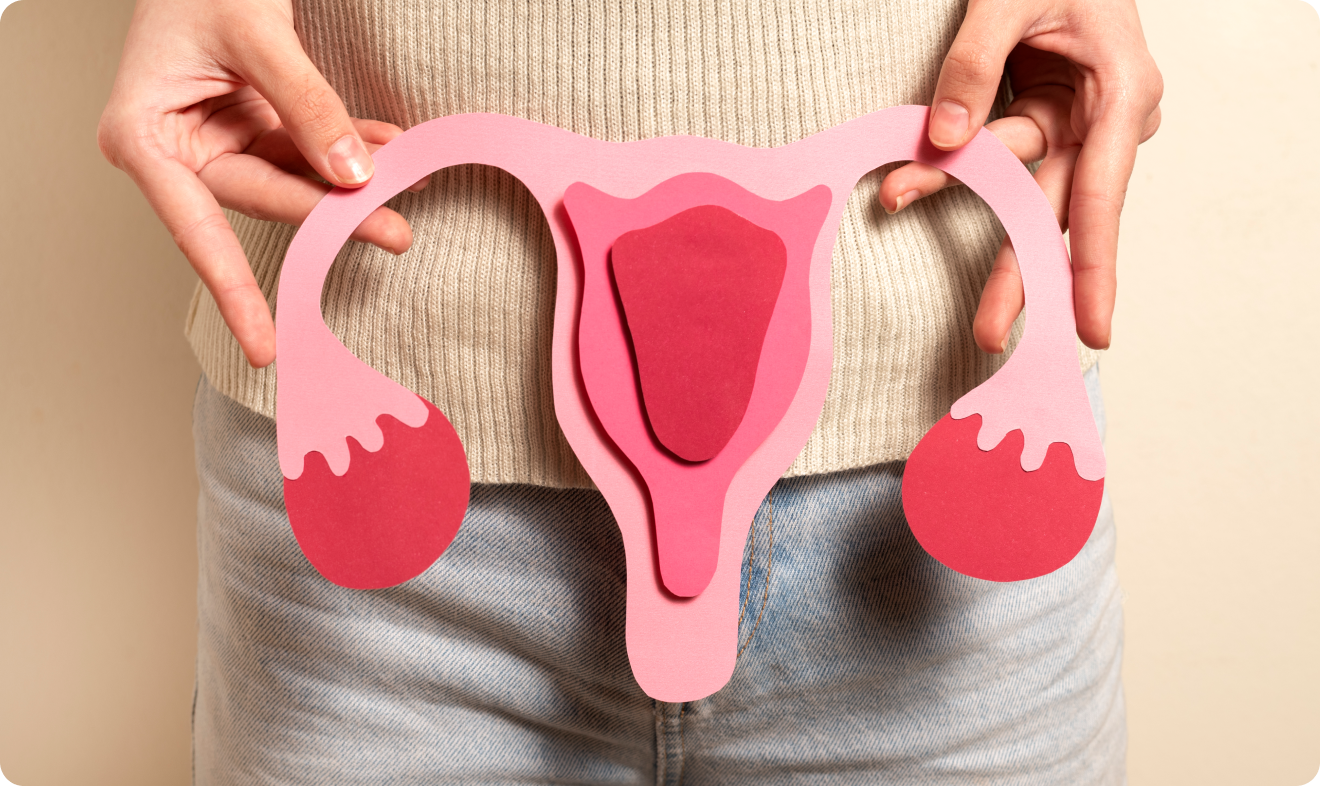Causes and Risk Factors of Poor g Reserve

What is a Low Ovarian Reserve?
Low ovarian reserve indicates that a woman’s ovaries contain a reduced number of eggs. This does not necessarily mean that pregnancy is impossible for her. However, her chances might be lower. This condition is also known as diminished ovarian reserve DOR. It is often identified through certain tests that assess hormonal balance and egg count. Doctors use tools like ovarian reserve testing to measure the indicators of this condition. For example, AMH levels and antral follicle count AFC. This helps them see how many eggs are left and what the fertility outlook is.
What are the Symptoms of Diminished Ovarian Reserve?
Most women with diminished ovarian reserve may not notice any symptoms. It is when they face difficulty conceiving that they realise the problem. Here are a few low ovarian reserve symptoms that you may experience:
- One subtle sign can be shortened menstrual cycles. The cycle lasts less than 26 days.
- Another indicator is irregular periods. You may miss cycles.
- Some women might experience light or scanty menstrual flow.
- You might face difficulty in conceiving a baby. Even regular intercourse may not result in pregnancy.
- It is observed that women who have this condition respond poorly to fertility medications. There can also be a minimal response to ovarian stimulation.
- Follicle stimulating hormone FSH is a hormone that helps the ovaries grow eggs for ovulation. You may experience raised FSH levels during early cycle testing. That means when tests are done in the early days of a woman’s menstrual cycle. These tests include blood tests and ultrasounds.
- Low AMH levels indicate you have a low egg reserve.
- In some cases, symptoms of hormonal imbalance may be present. This could be observed as mood swings or hot flashes.
Understanding Low Ovarian Reserve: Unravelling the Causes
A low ovarian reserve can result from a variety of factors. These are the most common causes of poor ovarian reserve:
- Ageing: This is the most natural and common cause of a diminished egg reserve. That is because both egg count and quality decline with age. This happens especially after the age of 35.
- Genetic disorders: There are certain inherited genetic conditions that can impair ovarian function. For example, Turner syndrome or Fragile X premutation.
- Autoimmune diseases: This is a condition where your body mistakenly attacks the ovarian tissue. This results in damage to egg-producing cells.
- Endometriosis: In this disorder, tissues that normally grow inside the uterus begin to grow outside. This condition can affect ovarian structure and reduce the number of follicles.
- Pelvic surgeries: Some procedures that involve the ovaries can unintentionally damage healthy ovarian tissue.
- Cancer treatments: Chemotherapy and radiation can harm ovarian cells. It can destroy granulosa cells, which play a crucial role in egg development.
- Environmental toxins: Long-term exposure to industrial chemicals is toxic to reproductive health. If you are around pesticides or heavy metals, it may accelerate ovarian ageing.
Exploring Effective Treatments: Navigating the Path Forward
One of these could be the proper diminished ovarian reserve treatment for you:
- Ovarian stimulation: Doctors give fertility medications to encourage the ovaries to make more eggs per cycle. This increases the chances of collecting eggs for procedures like IVF.
- Clomiphene citrate therapy: This is a pill (oral medication) that can help a woman’s body release an egg. This is possible if her ovaries are still producing some follicles (where eggs grow).
- In vitro fertilization IVF: This is a main treatment option for those with poor ovarian reserve. Doctors carefully stimulate the ovaries to retrieve as many eggs as possible. These eggs are then fertilized outside the body.
- Use of donor eggs: When your ovaries do not respond well to treatments, you turn to a donor. That simply means you are given eggs from another woman. This method is a very successful way of achieving pregnancy.
- Monitoring AMH and AFC: It is important to regularly track the levels of the hormone AMH and antral follicle count. This helps in deciding the treatment timing and other necessary steps.
Conclusion
Even with a low ovarian reserve, you have power over many things. Some simple choices can help you protect your eggs. That includes quitting smoking and staying away from harmful chemicals. Take care of any long-term illnesses you might have. You should try to prevent infections. Eat healthy food with supplements like folic acid to boost your fertility. Additionally, receiving the right hormone support can help your womb prepare for pregnancy.
At Archish IVF, we know everyone’s path to parenthood is unique. Our team gives you personal care, advanced testing, and personalised IVF treatments to support your parenthood.
FAQs
Yes, it is possible to get pregnant with diminished ovarian reserve. However, it may be harder and might need fertility treatments like IVF.
Stress does not directly cause it, but long-term stress may affect hormone balance. That can have some negative impact on your overall fertility.
Folic acid supports reproductive health and may help reduce egg-related abnormalities.
Success rates can be lower. However, IVF still offers a chance with a personalised treatment plan.
Try to avoid smoking and adopt other healthy habits. You must manage stress, stay healthy, and protect yourself from infections and toxins.
That is not always the case. It just indicates fewer eggs, but your periods may continue for years.
